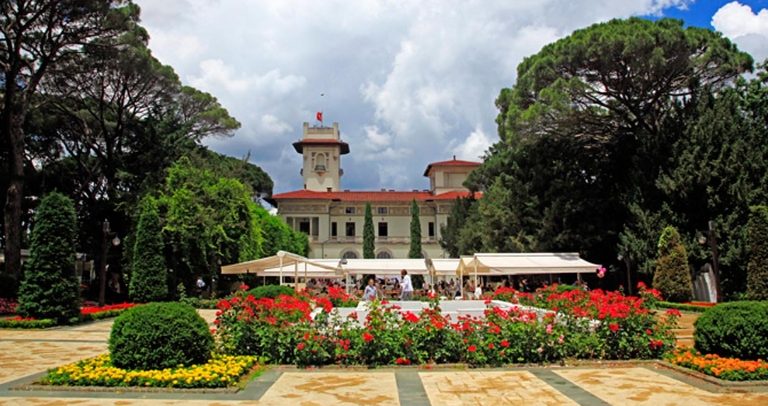Whole weeks passed in this way, so that no one saw him and he saw no one. The only signs that the old man was living were the disappearance of the provisions left on shore, and the light of the lantern kindled every evening with the same regularity with which the sun rose in the morning from the waters of those regions.
Evidently, the old man had become indifferent to the world. Homesickness was not the cause, but just this—that even homesickness had passed into resignation. The whole world began now and ended for Skavinski on his island. He had grown accustomed to the thought that he would not leave the tower till his death, and he simply forgot that there was anything else besides it.
Ceasing to exist
Moreover, he had become a mystic; his mild blue eyes began to stare like the eyes of a child, and were as if fixed on something at a distance. In presence of a surrounding uncommonly simple and great, the old man was losing the feeling of personality; he was ceasing to exist as an individual, was becoming merged more and more in that which inclosed him. He did not understand anything beyond his environment; he felt only unconsciously.
At last it seems to him that the heavens, the water, his rock, the tower, the golden sandbanks, and the swollen sails, the sea-mews, the ebb and flow of the tide—all form a mighty unity, one enormous mysterious soul; that he is sinking in that mystery, and feels that soul which lives and lulls itself. He sinks and is rocked, forgets himself; and in that narrowing of his own individual existence, in that half-waking, half-sleeping, he has discovered a rest so great that it nearly resembles half-death.
But the awakening came.
On a certain day, when the boat brought water and a supply of provisions, Skavinski came down an hour later from the tower, and saw that besides the usual cargo there was an additional package. On the outside of this package were postage stamps of the United States, and the address: “Skavinski, Esq.” written on coarse canvas.
The old man, with aroused curiosity, cut the canvas, and saw books; he took one in his hand, looked at it, and put it back; thereupon his hands began to tremble greatly. He covered his eyes as if he did not believe them; it seemed to him as if he were dreaming.
The book was Polish—what did that mean? Who could have sent the book? Clearly, it did not occur to him at the first moment that in the beginning of his lighthouse career he had read in the Herald, borrowed from the consul, of the formation of a Polish society in New York, and had sent at once to that society half his month`s salary, for which he had, moreover, no use on the tower.








